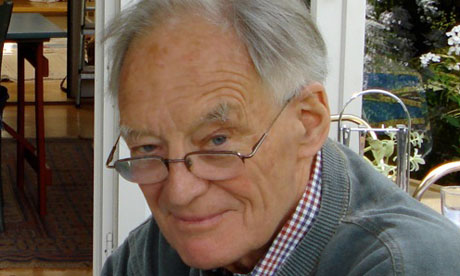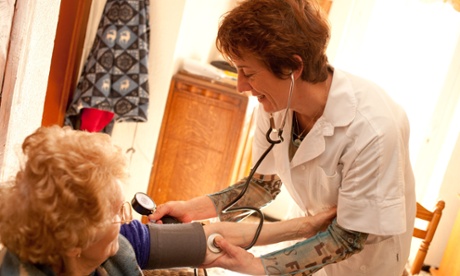Ian Tait, who has died of pneumonia aged 86, was prominent in the revolution that created what we now take for granted as general practice. When he entered it in 1959, general practice was thought of as a cottage industry. Frequently based in the GP's home, with the sitting-room doubling as a waiting-room, it tended to be single-handed, without ancillary help or appointment systems and based on numerous house calls. No special training was needed after qualifying. Indeed, for several years after the war, family doctors did not even need to have undertaken junior hospital appointments. And adding to the general gloom was an aside by the president of the Royal College of Physicians, Lord Moran – Winston Churchill's doctor – that many GPs were those "who had fallen off the ladder".
Ian helped to transform standards in the 1960s and 70s, not only in his own region of East Anglia but throughout Britain, as a supporter of the recently established Royal College of General Practitioners. This developed career training and a specialist examination, and also emphasised the concept of the general practice team – trained family doctors working together in purpose-built premises with practice nurses, appointment systems and receptionists.
He also devised a unique training scheme for entrants into family medicine, which was so successful that it was widely copied elsewhere. The three-year course was the first to be based on a district general hospital, where posts ensured that trainees got a good grounding in general medicine, geriatrics, paediatrics and obstetrics. It also nurtured the concept of whole-person care, augmented in a day-release scheme, in which once a week trainees could let their hair down, not only within the group but also to an independent clinical psychologist. All these changes helped to transform general practice into a major medical speciality, giving family physicians a status equivalent to hospital consultants.
Ian was born in Handcross, West Sussex, into a medical family. As a boy he wanted to go into the Royal Navy, but was persuaded to follow the family tradition. He studied medicine at Cambridge, qualifying in 1954, and St Bartholomew's Hospital Medical School in London, where he held house appointments before going for a year to St Luke's hospital, New York. After a further junior post at Ipswich hospital, his lifelong friend John Stevens invited him to join his practice in Aldeburgh, Suffolk, where he stayed for the rest of his life.
One of Ian's later ideas was to introduce first-year Cambridge medical students to GP surgeries. Becoming a regional adviser for East Anglia in the late 1960s, he ran seminars to train practising GPs to become trainers themselves. In 1976 he was appointed visiting professor of general practice at University College hospital, London, and subsequently held a similar post at Canberra. His innovations in medical records proved a great contribution to patient safety, culminating in an MD degree from Cambridge.
Ian also served the local community outside medicine, becoming a town councillor. He was a member of the Society of Friends, whose firm Quaker principles enabled him and his wife to stand unembarrassed in Aldeburgh high street lobbying against the proposed war in Iraq. His polymathic interests included publishing two books of poems, watercolour painting and sailing – and as GP to the Aldeburgh festival he wrote amusingly about the problems generated by artists and audience.
The composer Benjamin Britten had been a patient of Ian's for several years in Aldeburgh. One of Ian's last concerns was to correct a claim made in a recent biography of Britten that the composer's death had been due to syphilis of the aortic heart valve. Ian pointed out that a congenital defect had been found in an operation on Britten, and that routine blood tests for syphilis had proved negative. Though refutations of the claim followed in the press, Ian was too ill to read them.
He is survived by his wife, Janet, whom he met at Barts and who was also a doctor in the practice, three sons and a daughter, and nine grandchildren.
• Ian Greville Tait, general practitioner, born 18 August 1926; died 4 February 2013










